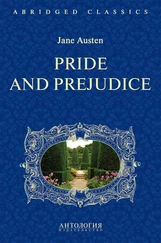MY DEAR SIR,
I feel myself called upon, by our relationship, and my situation in life, to condole with you on the grievous affliction you are now suffering under, and likewise inform you of my own suffering, due to a tragedy that has befallen one of your dearest acquaintances, my beloved wife, Charlotte. It is my sad duty to report that she is no more with us upon this earth; that she was somehow stricken with the strange plague-an affliction we were all blind to until Lady Catherine de Bourgh condescended to bring it to my attention in a most graceful manner. Her ladyship, I might add, was kind enough to offer her hand in carrying out the customary beheading and burning; but I felt it my husbandly duty to perform them with my own hand-trembling though it was. Be assured, my dear sir, that despite my own crippling grief, I sincerely sympathise with you and all your respectable family, in your present distress, which must be of the bitterest kind. The death of your daughter would have been a blessing in comparison of this, just as the beheading and burning of my bride was a fate preferable to seeing her join the ranks of Lucifer’s brigade. You are grievously to be pitied; in which opinion I am joined Lady Catherine and her daughter, to whom I have related the affair. They agree with me in apprehending that this dishonouring of one’s daughter will be injurious to the fortunes of all the others; for “who,” as Lady Catherine herself condescendingly says, “will connect themselves with such a family?” And this consideration leads me moreover to reflect, with augmented satisfaction, on my offer to Elizabeth last November; for had she replied otherwise, I must have been involved in your disgrace, instead of the mere sorrow which I am presently condemned to. Let me then advise you, dear sir, to throw off your unworthy child from your affection for ever, and leave her to reap the fruits of her own heinous offense. And let me conclude by congratulating you, for I shall no longer be requiring Longbourn upon your death, as I shall myself be dead by the time this post reaches you-hanging from a branch of Charlotte’s favourite tree, in the garden which her ladyship was so magnanimous in granting us stewardship over.
I AM, DEAR SIR, ETC., ETC.
Mr. Gardiner did not write again till he had received an answer from Colonel Forster; and then he had nothing of a pleasant nature to send. It was not known that Wickham had a single relationship with whom he kept up any connection, and it was certain that he had no near one living. His former acquaintances had been numerous; but since he had been in the militia, it did not appear that he was on terms of particular friendship with any of them. There was no one, therefore, who could be pointed out as likely to give any news of him. And in the wretched state of his own finances, there was a very powerful motive for secrecy, in addition to his fear of discovery by Lydia’s relations, for it had just transpired that he had left bastards and gaming debts behind him to a very considerable amount. Colonel Forster believed that more than a thousand pounds would be necessary to clear his expenses at Brighton, and another thousand to provide for those sorry girls he had left with the stains of shame. Mr. Gardiner did not attempt to conceal these particulars from the Longbourn family. Jane heard them with horror. “A gamester! A bastard maker!” she cried. “This is wholly unexpected. I had not an idea of it.”
Mr. Gardiner added in his letter, that they might expect to see their father at home on the following day, which was Saturday. Rendered spiritless by the ill-success of all their endeavours, he had yielded to his brother-in-law’s entreaty that he would return to his family. When Mrs. Bennet was told of this, she did not express so much satisfaction as her children expected, considering what her anxiety for his life had been before.
“What, is he coming home? And without poor Lydia?” she cried. “Sure he will not leave London before he has found them. Who is to fight Wickham, and make him marry her, if he comes away?”
As Mrs. Gardiner began to wish to be at home, it was settled that she and the children should go to London, at the same time that Mr. Bennet came from it. The coach, therefore, took them the first stage of their journey, and brought its master back to Longbourn.
Mrs. Gardiner went away in all the perplexity about Elizabeth and Mr. Darcy that had attended her from that part of the world. His name had never been voluntarily mentioned before them by her niece; and Elizabeth had received no letters since her return that could come from Pemberley.
The present unhappy state of the family rendered any other excuse for the lowness of her spirits unnecessary. Elizabeth, who was by this time tolerably well acquainted with her own feelings, was perfectly aware that, had she known nothing of Darcy, she could have borne the dread of Lydia’s infamy somewhat better. It would have spared her, she thought, one sleepless night out of two.
When Mr. Bennet arrived, he had all the appearance of his usual philosophic composure. He said as little as he had ever been in the habit of saying; made no mention of the business that had taken him away, and it was some time before his daughters had courage to speak of it.
It was not till the afternoon, when he had joined them at tea, that Elizabeth ventured to introduce the subject; and then, on her briefly expressing her sorrow for what he must have endured, he replied, “Say nothing of that. Who should suffer but myself? ‘For every rod of wet bamboo upon the student’s back, the teacher deserves two.’ Did not Master Liu say as much?”
“You must not be too severe upon yourself,” replied Elizabeth.
“You may well warn me against such an evil. Human nature is so prone to fall into it! No, Lizzy, let me once in my life feel how much I have been to blame. For it was I who resolved that you should be warriors, and not ladies. It is I who saw to your instruction in the ways of death, while neglecting to teach you anything of life. Grant me my shame, for it is most deserved.”
“Do you suppose them to be in London?”
“Yes; where else can they be so well concealed?”
“And Lydia used to want to go to London,” added Kitty.
“She is happy then,” said her father drily; “and her residence there will probably be of some duration.”
Then after a short silence he continued:
“Lizzy, I bear you no ill-will for being justified in your advice to me last May, which, considering the event, shows some greatness of mind.”
They were interrupted by Kitty, who came to fetch her mother’s tea.
“This is a parade!” he cried. “Can I have not a moment’s peace in which to suffer my misfortune? Tomorrow I will sit in my library, in my nightcap and robes of silk, and remain there till Kitty runs away.”
“I am not going to run away, papa,” said Kitty fretfully. “If I should ever go to Brighton, I would behave better than Lydia.”
“You go to Brighton. I would not trust you so near it as Eastbourne for fifty pounds! No, Kitty, I have at last learnt to be cautious, and you will feel the effects of it. No officer is ever to enter into my house again, nor even to pass through the village. Balls will be absolutely prohibited, unless you stand up with one of your sisters. And you are never to stir out of doors till you can prove that you have spent ten hours of every day in pursuit of your studies.”
Kitty, who took all these threats in a serious light, began to cry.
“Well, well,” said he, “do not make yourself unhappy. If you are a good girl for the next ten years, I will take you to a review at the end of them.”
TWO DAYS AFTER Mr. Bennet’s return, as Jane and Elizabeth were tracking a buck through the shrubbery behind the house, they saw the housekeeper coming towards them, and, concluding that she came to report their mother’s latest fit of vomiting, went forward to meet her; but, instead of the expected news, when they approached her, she said to Miss Bennet, “I beg your pardon, madam, for interrupting you, but I was in hopes you might have got some good news from town, so I took the liberty of coming to ask.”
Читать дальше












